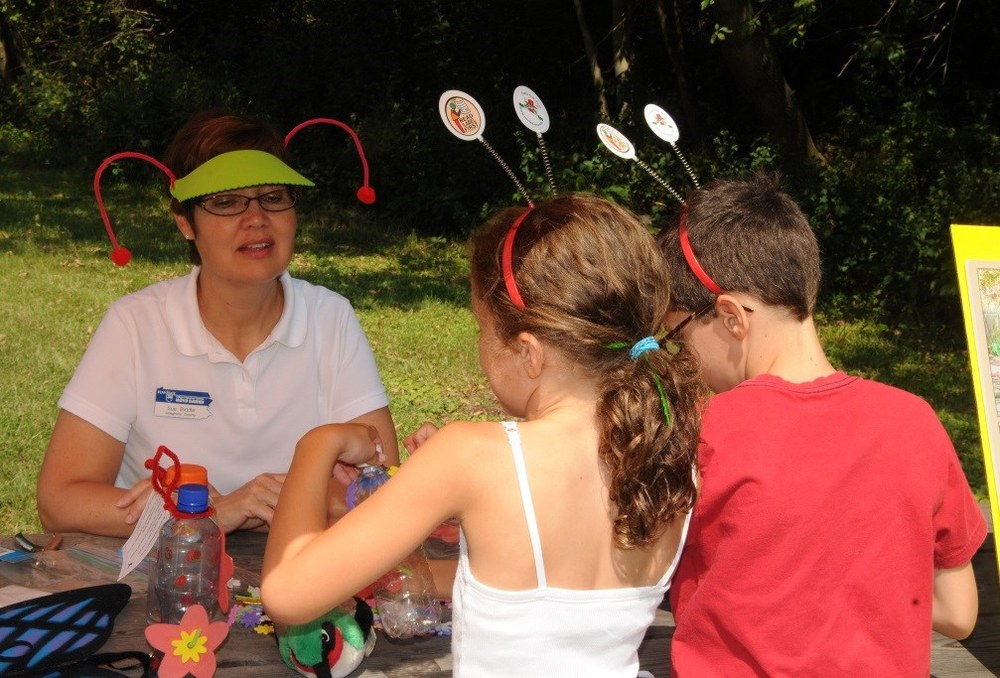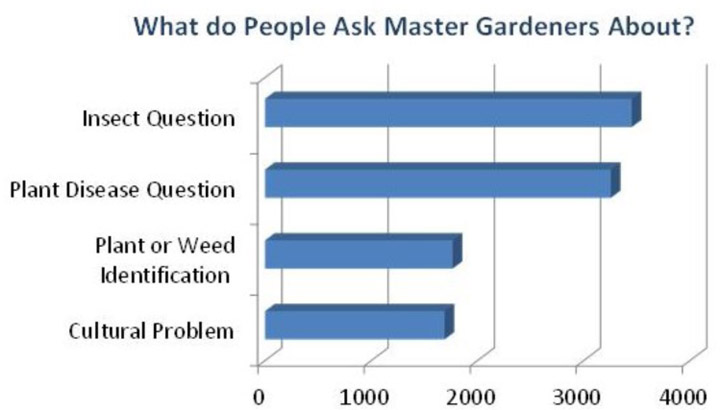Penn State Extension has Master Gardener volunteers in almost every county. Master Gardeners are trained to provide science-based solutions to help people solve their gardening and landscape problems. Through their local outreach they educate people who are doing gardening projects in many communities. They teach people to grow their own produce and to use pesticides carefully.

Reaching More Pennsylvania Residents
In 2013
- 2,374 Master Gardener volunteers helped Penn State Extension
- 273 new Master Gardeners were trained
Master Gardener Volunteers
- contributed 142,509 hours of their time
- worth an estimated value of $3,028,316.00
- taught 474,953 Pennsylvania residents
Garden Questions Answered
Master Gardeners operated a garden helpline in 41 counties. They reported 17,578 contacts with people who sought this service via telephone, email or visits to the county office.

First Detectors
Master Gardeners are trained and have been the first to detect important invasive pests in their communities, including the brown marmorated stink bug, the lily leaf beetle, and the emerald ash borer.

Lily leaf beetle was found by a Clinton County Master Gardener in 2013.
Sharing research-based information across Pennsylvania

Contribute to Research
Master Gardeners in 29 counties assisted in research projects, contributing to our understanding of pollinators, vegetable and flower varieties, sweet corn insect pests, and reintroduction of the American chestnut.
Master Gardeners Speak
- 1,080 speakers' bureau talks
- 709 lectures given at symposiums
- 145 radio, TV or Internet spots
Master Gardeners Write
- 843 articles published in a newspaper or blog
- 3,613,921 people reached by the newspapers
- 151,692 visited the blogs
Master Gardeners in the News
- 320 news articles, radio, TV or Internet spots were published about their projects
Master Gardeners Teach Youth
- in 161 schools and 40 camps
- 69,411 children educated by Master Gardeners
Master Gardeners Partner
- with 265 community organizations
Pollinator Friendly Garden Certification Program

Pollinators are very important to production agriculture as well as home gardens. Gardeners can help pollinators by providing food, nesting habitat, and reducing their use of pesticides.
Penn State Master Gardeners continue to do their part to help pollinators through their Pollinator Friendly Garden certification program.
Check out the Pollinator Friendly Garden Certification website to learn steps to create a pollinator friendly garden and apply for certification.
To date, 300 gardens in 45 counties (including the Governor's Mansion) have had their gardens certified as "Pollinator Friendly."

